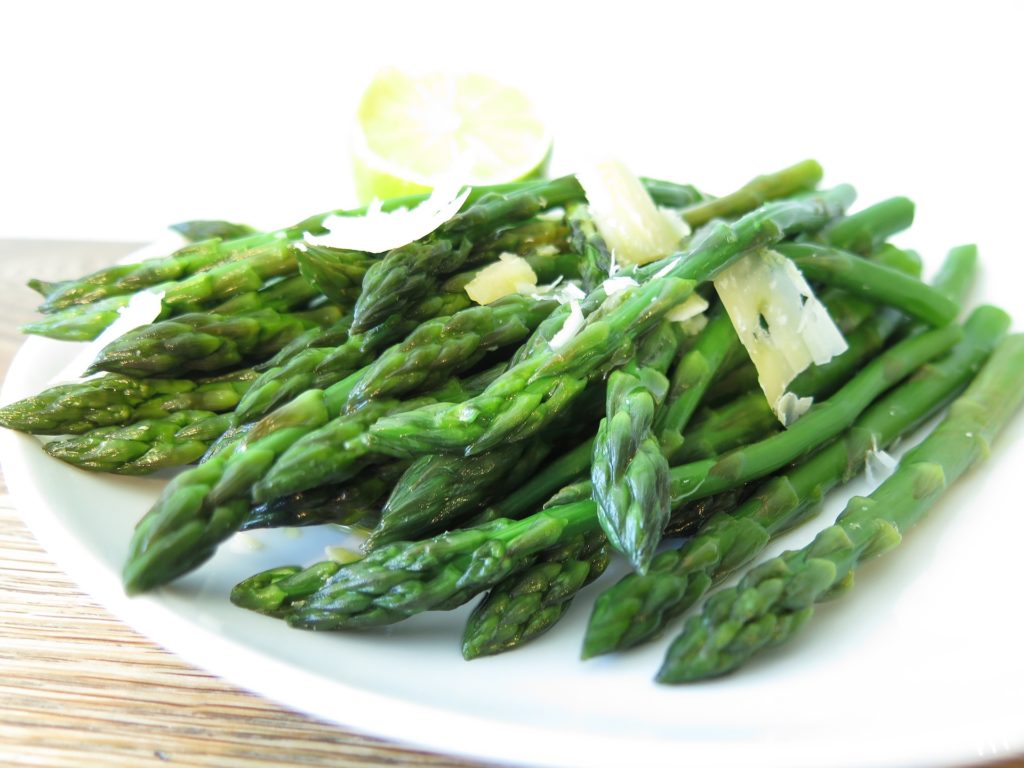Asparagus is called Asparagus Officinalis, and it is a member of the lily family. This famous vegetable comes in a variety of colours, including green, white and purple. It’s used as a dish around the world, including frittatas, pasta and stir-fries. Asparagus is a low-calorie item and packed with essential vitamins, minerals and antioxidants. So, let’s see the benefits of Asparagus.
Many Nutrients But Few Calories
Asparagus has a very low amount of calories but boasts an impressive nutrient profile. In every 90 grams of cooked asparagus contains.
- Calories: 20
- Protein: 2.2 grams
- Fat: 0.2 grams
- Fiber: 1.8 grams
- Vitamin ( C, A and K)
- Folate: 34% of the RDI
- Potassium: 6% of the RDI
- Phosphorous: 5% of the RDI
- Vitamin E: 7% of the RDI
Asparagus possesses small amounts of other micronutrients It is including iron, zinc and riboflavin. It’s a better source of vitamin K, an essential nutrient involved in blood clotting and bone health. As well as asparagus is high in folate and many important processes in the body.
Good Source of Antioxidants
Antioxidants are compounds that help protect your cells from the harmful effects of free radicals and oxidative stress. Oxidative stress contributes to ageing, chronic inflammation and many diseases, including cancer. Like other green vegetables, Asparagus is high in antioxidants. It has vitamin E, vitamin C and glutathione, as well as various flavonoids and polyphenols.
Asparagus is high in the flavonoids quercetin, isorhamnetin and kaempferol. It has been found to have blood pressure-lowering, anti-inflammatory, antiviral and anticancer effects. Purple asparagus contains powerful pigments called anthocyanins. It give the vegetable its vibrant colour and have antioxidant effects in the body.
In fact, increasing anthocyanin intake has been shown to decrease blood pressure and the risk of heart attacks and heart disease. Adding asparagus to our foods can provide your body with a range of antioxidants to promote good health.
Can Improve Digestive Health
Dietary fiber is essential for good digestive health. Just half a cup of asparagus contains 1.8 grams of fiber, which is 7% of your daily needs. Asparagus is high in insoluble fiber, which adds bulk to stool and supports regular bowel movements.
It contains a small amount of soluble fiber, which dissolves in water and forms a gel-like substance in the digestive tract. Soluble fiber feeds the friendly bacteria in the gut, such as Lactobacillus and Bifidobacteria.
Increasing the number of these beneficial bacteria plays a role in strengthening the immune system and producing essential nutrients like vitamins B12 and K2. Obtaining asparagus for foods as part of a fiber-rich diet is an excellent way to help meet your fiber needs and keep your digestive system healthy.

Helps Support a Healthy Pregnancy
Asparagus is the best source of folate, also known as vitamin B9. Just half a cup of asparagus provides adults with 34% of their daily folate needs and pregnant women with 22% of their daily needs. Folate is the main nutrient that helps form red blood cells and produce DNA for healthy growth and development. It’s especially important during the early stages of pregnancy to ensure the healthy development of the baby.
Getting enough folate from sources like asparagus, green leafy vegetables and fruit can protect against neural tube defects, including spina bifida. Neural tube defects can lead to a range of complications, ranging from learning difficulties to lack of bowel and bladder control to physical disabilities. Adequate folate is so vital during pre-pregnancy and early pregnancy that folate supplements are recommended to ensure women meet their requirements.
Helps Lower Blood Pressure
High blood pressure affects more than 1.3 billion people worldwide and is a major risk factor for heart disease and stroke. Researchers found that increasing potassium is a way to lower high blood pressure. Potassium lowers blood pressure in two ways. They are by relaxing the walls of blood vessels and excreting excess salt through urine. Asparagus is a better source which we can obtain potassium.
Researchers say that this effect was due to an active compound in asparagus that causes blood vessels to dilate. Therefore, human studies are needed to determine whether this active compound has the same effect on humans. Every time, eating more potassium-rich vegetables, such as asparagus, is a great way to help keep your blood pressure in a healthy range.
Can Help You Lose Weight
In present, no studies have tested the effects of asparagus on weight loss. So, it has a number of properties that could potentially help you lose weight. It is very low in calories, with only 20 calories in half a cup. This means you can eat a lot of asparagus without taking in a lot of calories. Furthermore, it’s about 94% water. Consuming low-calorie, water-rich foods is associated with weight loss Asparagus are rich in fiber, which has been linked to lower body weight and weight loss.
However, there are many delicious recipes you can read through https://mealsweb.com/ and https://www.health.com/nutrition/asparagus-health-benefits







